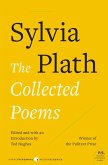Edwin Waugh's "Lancashire Songs" is a remarkable collection that captures the spirit and vibrancy of the Lancashire region through a rich tapestry of poetry and song. Written in the mid-19th century, Waugh employs a dialect that not only celebrates the local vernacular but also immerses readers in the cultural landscape of industrial England. His work reflects the socio-economic transformations of the time, weaving themes of working-class struggles, regional pride, and the natural beauty of the Lancashire countryside into a lyrical form that resonates with authenticity and emotional depth. Through a masterful blend of humor, pathos, and vivid imagery, Waugh showcases the intricate connection between identity and place, inviting readers to experience the life and traditions of the Lancashire people. Edwin Waugh, a renowned figure in English literature, was deeply influenced by his humble beginnings in the heart of Lancashire. Born in 1817, Waugh's experiences as a mill worker and his intimate knowledge of local traditions informed his literary voice. His dedication to authenticity and the celebration of regional identity was a significant motivator for the creation of "Lancashire Songs," as he sought to elevate the voices of his community and capture the essence of their experiences amidst the rise of industrialization. "Lancashire Songs" is a must-read for anyone interested in the intersection of culture, language, and social history. Waugh's keen observations and celebratory tone provide not only a captivating literary experience but also a poignant reflection on the human condition within a specific regional context. Readers will find themselves transported to the heart of Lancashire, enriched by Waugh's passionate portrayal of its people and their songs.
Bitte wählen Sie Ihr Anliegen aus.
Rechnungen
Retourenschein anfordern
Bestellstatus
Storno








